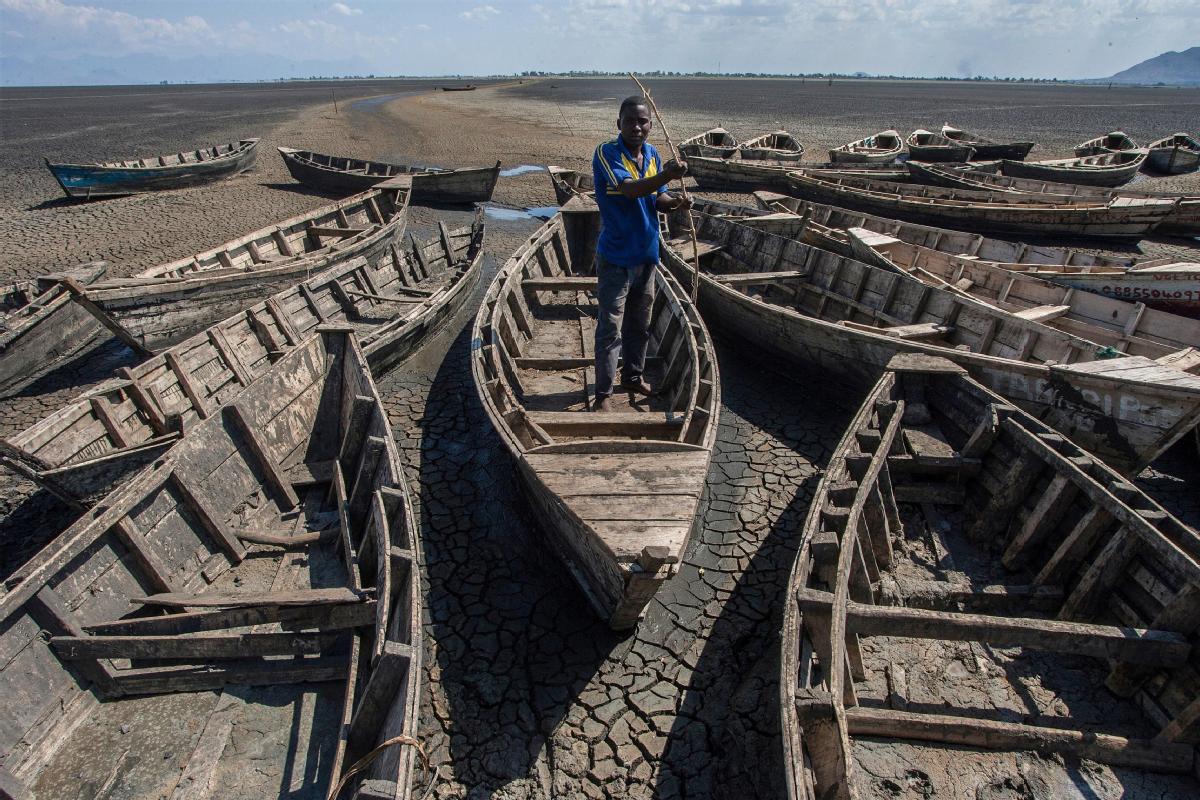Lake lays bare the cost of climate change


ZOMBA, Malawi - Just four months ago, the fishing harbor at Kachulu on the western shores of Lake Chilwa in Malawi was bustling with fishermen and traders haggling over the catch of the day.
Today, hundreds of fishing boats sit marooned on cracked, dry mud as vultures fly above the shores of the once productive fishing zone 30 kilometers east of the southern African country's old capital Zomba.
Julius Nkhata, a local villager, said the increasingly dramatic seasonal dry-out of the lake - blamed by experts on man-made climate change - has displaced local people and increased joblessness.
"Some of them have relocated to Lake Malawi while others have taken up temporary labor jobs in the rice schemes around here," he said.
Chilwa, the country's second largest lake after Malawi, is shallow and saline and particularly prone to seasonal variations in water level and was last so dry during a drought in 1991.
It is home to two inhabited islands and also sustains nearly 200 waterbird species.
Environmental scientist professor Sosten Chiotha, who has studied the lake for 27 years, estimates it is now 60 percent dry.
"Records show the lake has dried completely several times in the last 100 years,... according to published literature, it was a cycle of 20 to 25 years," he said.
But Chiotha warned that rhythm has changed. "From the 1990s, the frequency of the drying has increased and this is connected to the impacts of extreme weather events typical of climate change," he said.
One-and-a-half million people live in the areas on the Lake Chilwa basin, which is one of the most densely populated areas in southern Africa.
Deforestation
Environmental destruction has caused the underground water table to be replenished at a much slower pace, starving the lake of continuous water flow during the dry season.
James Nagoli, researcher at the Worldfish action group, said the main catchment mountains for Lake Chilwa have been degraded by deforestation.
"We have only one peak around January when we have rainfall but after that, you don't get a lot of flow to the lake," he said, adding farming was also pushing silt into the lake, making it shallower.
"What is happening at the lake is a result of what is happening in the catchment. We need to make sure the catchment is restored."
Maru Yakobe grew up depending on the lake from birth.
Fishing used to earn her as much as 15,000 kwacha ($20) a day - enough to feed and clothe her five children, and send them to school.
"We used to thrive because of the lake, but now that there is no business, the devastation has not spared anyone in the village," she said.
Agence France-Presse



































